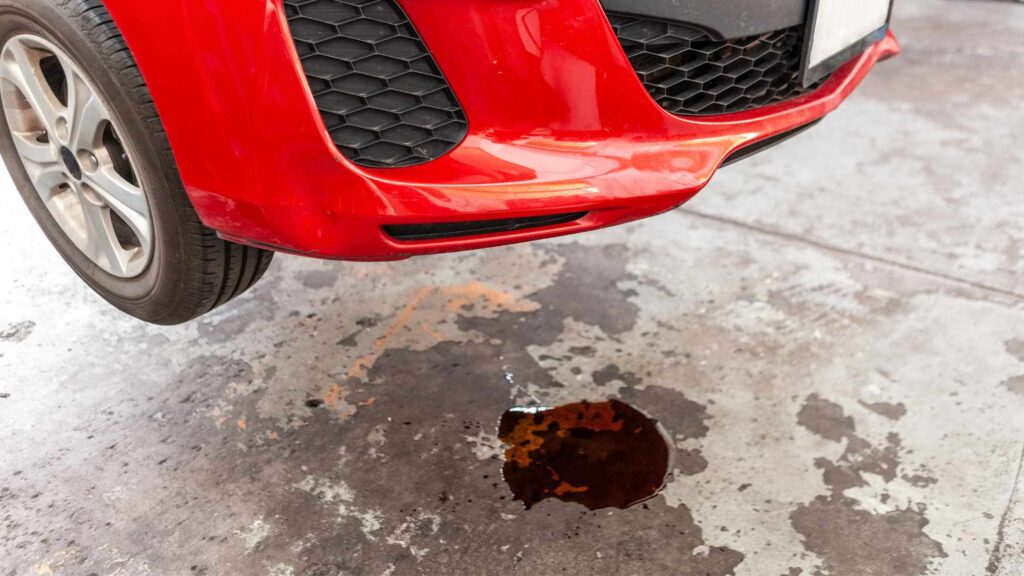Introduction
Engine fluid leaks can be a serious problem that can lead to significant damage if not detected and fixed promptly. In this article, we will provide you with a comprehensive approach to detecting and fixing engine fluid leaks. By understanding the common causes, symptoms, and solutions for engine fluid leaks, you can ensure the longevity and efficiency of your vehicle.
Common Causes of Engine Fluid Leaks
There are several common causes of engine fluid leaks that you should be aware of:
1. Worn Gaskets and Seals
Over time, the gaskets and seals in your engine can wear out, leading to leaks. This can happen due to age, high mileage, or improper maintenance. It is crucial to regularly inspect and replace worn gaskets and seals to prevent fluid leaks.
2. Loose or Damaged Hoses
Hoses carry various fluids throughout your engine. If these hoses become loose or damaged, they can result in leaks. Inspecting your hoses for signs of wear and tear and tightening any loose connections is essential to prevent fluid leaks.
3. Cracked or Damaged Radiator
The radiator plays a crucial role in cooling your engine. If it becomes cracked or damaged, it can cause coolant leaks. Regularly inspecting your radiator for any signs of damage and promptly repairing or replacing it can help prevent fluid leaks.
4. Faulty Oil Filter or Oil Pan
A faulty oil filter or oil pan can lead to oil leaks. Oil leaks can be particularly problematic as they can cause engine damage and affect lubrication. Ensuring your oil filter and oil pan are in good condition and replacing them when necessary is vital to prevent oil leaks.
Symptoms of Engine Fluid Leaks
Detecting engine fluid leaks early on is essential to prevent further damage. Here are some common symptoms of engine fluid leaks that you should be aware of:
1. Fluid Puddles Underneath Your Vehicle
One of the most apparent signs of an engine fluid leak is the presence of puddles underneath your vehicle. These puddles can be different colors depending on the type of fluid leaking. If you notice any puddles, it is crucial to identify the source and address the issue promptly.
2. Decreased Fluid Levels
If you regularly check your fluid levels and notice a significant decrease without any visible signs of leakage, it could indicate an internal leak. Monitoring your fluid levels and addressing any unexplained decreases can help you detect and fix leaks early on.
3. Strange Odors
Certain fluids, such as coolant and transmission fluid, have distinct odors. If you notice any unusual smells coming from your engine, it could be an indication of a fluid leak. Pay attention to any strange odors and investigate the source to determine if a leak is present.
4. Engine Overheating
A sudden increase in engine temperature could be a sign of a coolant leak. Coolant is essential for regulating engine temperature, so any leaks can result in overheating. If your engine starts to overheat, it is crucial to address the issue immediately to prevent further damage.
Fixing Engine Fluid Leaks
Once you have detected an engine fluid leak, it is important to take appropriate measures to fix the issue. Here are some common solutions for fixing engine fluid leaks:
1. Replace Worn Gaskets and Seals
If worn gaskets and seals are causing the leak, replacing them is necessary. Consult your vehicle’s manual or seek professional help to ensure proper replacement techniques.
2. Tighten or Replace Hoses
If loose or damaged hoses are the culprit, tightening the connections or replacing the hoses may be required. Ensure you use the correct type and size of hoses for your engine.
3. Repair or Replace the Radiator
In the case of a cracked or damaged radiator, repairing or replacing it is the best solution. Consult with a professional mechanic to determine the most suitable course of action.
4. Replace Faulty Oil Filter or Oil Pan
For oil leaks, replacing the faulty oil filter or oil pan is necessary. Remember to use the recommended oil filter and ensure proper installation.
Summary
Engine fluid leaks can be detrimental to your vehicle’s performance and longevity. By understanding the common causes and symptoms of engine fluid leaks, you can detect them early and take the necessary steps to fix the issue. Regular maintenance, inspections, and prompt repairs are essential in preventing further damage. Remember, when in doubt, consult with a professional mechanic to ensure the proper handling of engine fluid leaks.







